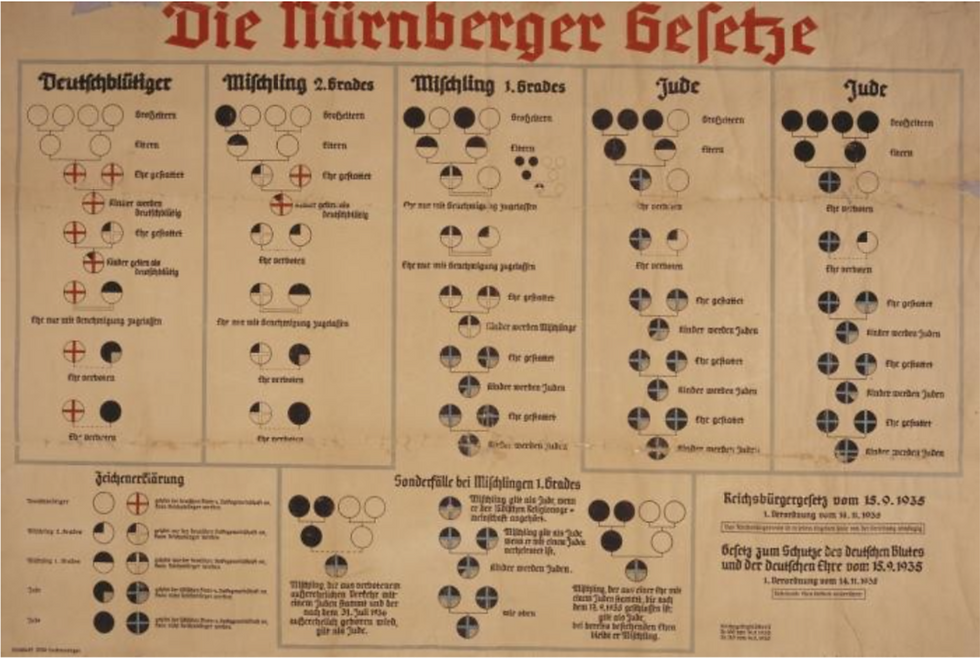Written by Julia Piórko Bermig
"I swore never to be silent whenever and wherever human beings endure suffering and humiliation." — Elie Wiesel
82 years since the start of one of the largest atrocities in human history, we commemorate International Holocaust Remembrance Day on the 27 January annually.
Why is it so relevant and important to this day?
What led to the greatest atrocity in human history exists to this day- the infectious germ of hatred is infecting our society more than ever.
Who is to say that propaganda peddled by modern populists couldn't lead to the same thing?
Politicians post #WeRemember selfies and sanitised press releases.
But what good is that when they ignore Sahel, DRC, Yemen, Syria, Ukraine.
What good is a hashtag when hateful rhetoric plagues our political discourse?
When refugees and asylum seekers become barbaric job steelers in the public consciousness. When women’s rights are being taken everyday. When anti-semitism is spewed by rappers, sports stars and heads of state. When we become numb to news of hate crimes and mass shootings.
When we succumb to inaction and ignorance, atrocities occur. As Simon Wiesenthal said, “For evil to flourish, it only requires good men to do nothing." In our modern world every human crisis, no matter how small, is an inherently global crisis. As Elie Wiesel said, “We must always take sides. Neutrality helps the oppressor, never the victim." — Elie Wiesel
Advocating for every victim and stopping extremism and propaganda is the only way to ensure such an atrocity never happens again. The greatest atrocities start with small changes that we don't even realise. Goebbels propaganda machine started spewing out anti-semetic propaganda, scapegoating minorities as to blame for economic and political turmoil (sound familiar?) . This developed into the Nuremberg Laws in 1935, which legally declared the Nazi’s racial hierarchy and codified discrimination.

The holocaust did not come out of the blue. Before genocide, there were years of orchestrated hateful rhetoric of nazi propaganda dehumanizing and animalizing Jewish, Roma-sinti, Lgbtq+, disabled communities. The ministry of public enlightenment was established in 1933 - 8 years later came the “final solution”. Never has hate caused such a staggering loss of life, such a long-lasting profound trauma, such a deep scar in the social fabric of a whole continent. Then came the final solution- after years of an orchestrated hateful campaign.
The Legacy of the Holocaust serves as a cautionary tale of the sheer danger of hatred, discrimination and compliance.
We observe Holocaust remembrance day to commemorate and pay respects to victims, to the millions who were murdered. To educate, promote peace and prevent future catastrophe, as 63% of Americans under 40 did not know an estimated 6 million died during the Holocaust. Education is vital to pass on the lessons learned and stay aware, especially as Holocaust denialism continues to thrive. We must pass on this cautionary tale to ensure it never repeats.
Works Cited
Byman, Daniel L. “How Hateful Rhetoric Connects to Real-World Violence.” Brookings, 9 Apr. 2021, www.brookings.edu/blog/order-from-chaos/2021/04/09/how-hateful-rhetoric-connects-to-real-world-violence/.
Ramgopal, Kit. “Survey Finds “Shocking” Lack of Holocaust Knowledge in People under 40.” NBC News, 16 Sept. 2020, www.nbcnews.com/news/world/survey-finds-shocking-lack-holocaust-knowledge-among-millennials-gen-z-n1240031.
Wiesel, Elie. Night. 1958. New York, Hill and Wang, a Division of Farrar, Straus and Giroux, 2006.
Comments